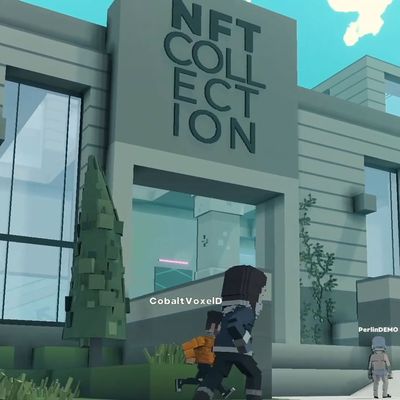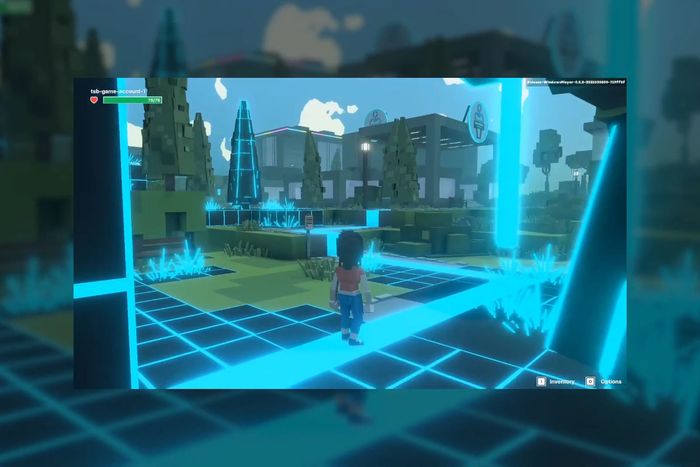
About two weeks ago, a representative from Facebook reached out to an upstart video-game company called the Sandbox, which hosts a blocky, Lego-like online world where people can buy plots of digital real estate as non-fungible tokens, or NFTs. “They wanted to know more about what we do,” Arthur Madrid, the Sandbox’s CEO, told Intelligencer. The outreach came at an auspicious time, just a few weeks after SoftBank, the Japanese tech-focused bank, led a $93 million funding round and Snoop Dogg was brought on as an adviser. The start-up has since scored a partnership with Adidas, and its cryptocurrency is up more than 100-fold this year, putting the company’s market capitalization around $6 billion. Last week, somebody made a digital yacht — a crypto obsession — on the Sandbox and sold the NFT for a whopping $650,000. It’s the kind of company that, while not yet a household name like Roblox or Minecraft, has about 1 million crypto wallets on its platform with about 150,000 new ones being added each week, Madrid told me.
Still, Madrid didn’t see a reason to work with the Silicon Valley giant. “They cannot do what we do,” he said. “It’s an advertising company. It’s gonna be all about getting your names, getting your tastes. What I want to create with Sandbox is very different.”
At Miami’s Art Basel — which this year has been co-opted by the crypto industry as a kind of coming-out party for NFTs — the biggest topic of conversation is the very future of the internet itself, whose next iteration is typically described as either the metaverse or Web3. Participants talk constantly about how digital assets like those generated by the Sandbox can play a role in its creation. Facebook, the company that is most aggressively trying to reshape the online world in its image, is glaringly absent from most of these conversations. (The company, which didn’t return a request for comment, recently rebranded itself as Meta Platforms, but on the occasions it comes up, people only use its government name with a put-upon affect).
Facebook is still the biggest company in social media, an $860 billion Goliath that has more active users than any other site. With all that power, the Sandbox’s snub might have seemed crazy not long ago. But the fact that it makes a certain amount of sense now speaks to how quickly things are changing in the game to dominate the next version of the internet — and how the heavies of the past decade are already considered relics by many of their upstart rivals in cryptoland.
Mark Zuckerberg has done more than anyone to popularize the concept of the metaverse. On October 28, the 37-year-old billionaire unveiled his vision of it as the “embodied internet” in a video that was widely derided for its wooden speeches and weird hand gestures — but it was, at the very least, successful in changing the conversation around Facebook after whistleblower Frances Haugen came public with various damaging revelations, prompting multiple state attorneys general to investigate the company.
Most NFT enthusiasts in Miami bristle at Facebook’s metaverse — a future that, like the current site, would likely rely on advertising and give Zuckerberg an outsize role in shaping our social reality. In the competing crypto-centric vision of the future, your profile picture, your video-game characters, your social-media graph — all will be digital assets you actually own through some variety of blockchain technology, not just use at the whim of a corporate behemoth. Zuckerberg’s version is arguably more about spending large amounts of time in immersive virtual environments wholly created by his company.
“What Facebook is doing with Meta … is a ‘fake metaverse,’ unless they actually have a real description as to how we can truly own it,” Yat Siu, the co-founder and chairman of the Sandbox’s parent company, Animoca Brands, said at a recent conference. “Until then, it’s just Disneyland. It’s a beautiful place to be, but we probably don’t want to really live there. It’s not the kind of place that we can actually build a business.”
The stakes for creating a widely adopted metaverse couldn’t be higher. A competitor to the Sandbox, Decentraland, sold a plot of digital real estate for $2.4 million last month. For Madrid, the key is not only to give users a sense of ownership over their video-game world but also make it a place that people — its players are generally about 12 years old — genuinely want to return to, a distinction Facebook has struggled with especially among teenagers. “The biggest challenge for us is to make it cool, to make it fun,” Madrid told me. “Yeah, we can talk for hours about the system. But in the end, it’s like, ‘What series do you like on Netflix? What do you watch on HBO?’”
(Since Silicon Valley is a small world propelled by petty rivalries, it’s worth noting that among the people who have bought digital land in the Sandbox game are the Winklevoss twins, the Facebook co-founders who sued Zuckerberg over credit for starting the company and have since invested heavily in crypto and founded Gemini, an exchange for digital currencies.)
On Wednesday, the Sandbox held its own party in the artsy Wynwood district of Miami at a large outdoor bar called Toe Jam Backlot, where house music blared through the night. (There were, for some reason, at least a dozen people wearing wide-brim hats.) A partygoer unaffiliated with the company told me the Sandbox was, in no uncertain terms, “the future,” the kind of confident fortune-telling that’s endemic among the programmers and salespeople down for the week.
At one point, Madrid pulled me into a back room. After talking about the state of tech, he wanted to show me something on Twitter. He took my phone and pulled up a recent tweet from Sandbox:
But it wasn’t that tweet he wanted me to see. After a little bit of searching, he found a reply from the Meta account posted four hours earlier. “Love to see it! The metaverse is getting better by the day,” the tweet read. Then he laughed.
“Should we reply?” he asked me. “What should we say?”
The Sandbox account still hasn’t responded.































